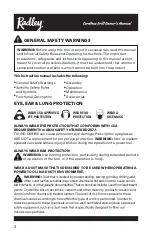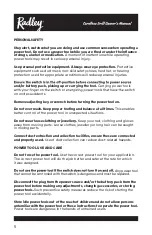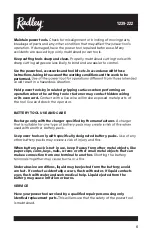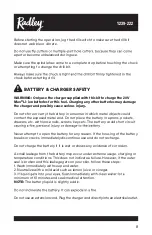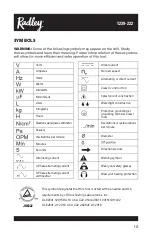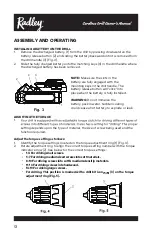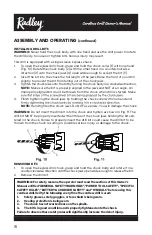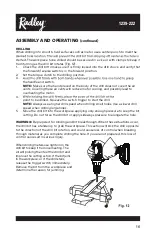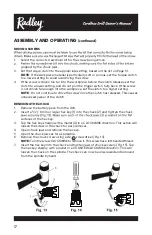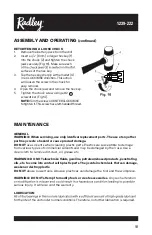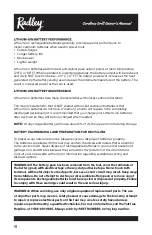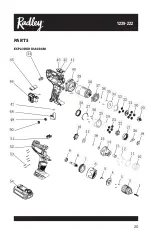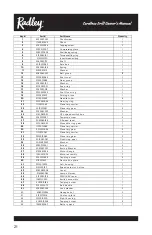
17
ASSEMBLY AND OPERATING
(continued)
DRIVING SCREWS
1.
Select the correct screwdriver bit for the screw being driven.
2.
gripped by the chuck jaws.
3.
Set the torque clutch to the appropriate setting, based on the list on Page 13.
NOTE
: If the workpiece material is particularly soft or porous, set the torque clutch
to a lower setting to avoid overdriving the screw.
4.
If the screw is driven too far into the workpiece before the clutch releases, set the
clutch to a lower setting, and do not pull the trigger switch fully back. If the screw
is not driven far enough into the workpiece, set the clutch to a higher setting.
NOTE
: Do not continue to drive the screw once the clutch has released. This causes
unnecessary wear of the clutch.
REMOVING THE CHUCK
1.
Remove the battery pack from the drill.
2.
Insert a
5
/
16
” / 8 mm or larger hex key (1) into the chuck (2) and tighten the chuck
surfaces of the hex key.
3.
Tap the hex key sharply with a mallet (4) in a CLOCKWISE direction. This action will
loosen the screw in the chuck for easy removal.
4.
Open chuck jaws and remove the hex key.
5.
Open the chuck jaws as far as possible.
6.
Remove the chuck screw using a #2 screwdriver (Fig. 14).
NOTE:
Turn the screw CLOCKWISE to remove it. This screw has a left-handed thread.
7.
Insert the hex key into the chuck and tighten jaws of chuck securely (Fig. 15). Tap
the hex key sharply with a mallet in a COUNTERCLOCKWISE direction. This will
loosen the chuck on the spindle. The chuck can now be unscrewed and removed
from the spindle by hand.

